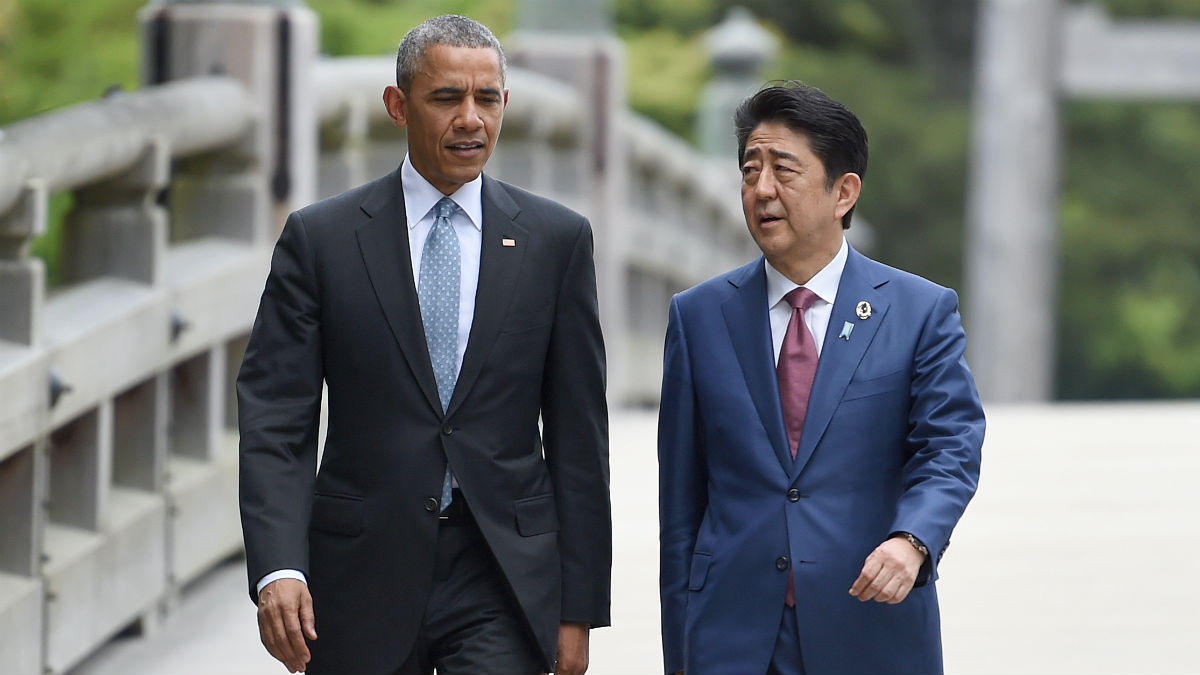Obama stirs debate with Hiroshima visit during G7 summit
US president will not apologise for devastating 1945 bombing during his historic trip

A free daily email with the biggest news stories of the day – and the best features from TheWeek.com
You are now subscribed
Your newsletter sign-up was successful
Barack Obama will today become the first serving US president to visit Hiroshima since Harry S Truman authorised the city's destruction with a 15 kiloton atomic bomb in 1945.
"I'm coming, first and foremost, to remember and honour the tens of millions of lives lost during the Second World War," he said.
According to the New York Times, Obama's radical decision to visit the city is in keeping with his administration's "disdainful" view of received wisdom in US foreign policy.
The Week
Escape your echo chamber. Get the facts behind the news, plus analysis from multiple perspectives.

Sign up for The Week's Free Newsletters
From our morning news briefing to a weekly Good News Newsletter, get the best of The Week delivered directly to your inbox.
From our morning news briefing to a weekly Good News Newsletter, get the best of The Week delivered directly to your inbox.
In March, Obama became the first president to visit Cuba for 90 years, while in 2012, he made history with a trip to Myanmar. He has negotiated a nuclear deal with the US's old enemy, Iran, and last week, re-opened arms sales to former foe Vietnam.
But visiting Hiroshima could be the most risky of his innovations, says the New York Times. US presidents have avoided the city because none wants to be seen as apologising for dropping the atom bomb.
An apology for the act of war, which some historians believe saved lives by ending Japan's military expansion, would not play well with conservative elements at home. Nor will it win favour with those Asian nations that were the victims of Japanese aggression.
As far as domestic critics go, Obama has made it clear he will not apologise – and with no elections left to fight for himself, he "cares far less" about giving fuel to opponents, says the NYT.
A free daily email with the biggest news stories of the day – and the best features from TheWeek.com
In Asia, however, the visit might be taken as an endorsement of Japanese Prime Minister Shinzo Abe's recent drive to move his nation away from remorse over its past aggressions and return it to the military status of a "normal country".
Why run that risk? There are two reasons: firstly, Obama hopes the visit will help him curb the world's stockpiles of nuclear weapons, cementing his presidential legacy. He won the Nobel Peace Prize in 2009 partly because of his stance on the issue.
Secondly, China's expansion in the South China Sea has ruffled feathers among other nations in the area. As a major military power in the region, the US is keen to demonstrate that it will support and respect Japan.
Obama is in Japan for a meeting of the G7, the world's leading seven industrialised nations: the US Canada, the UK, Italy, Germany, France and Japan.
The leaders have set global growth as an "urgent priority" and released an action plan to counter terrorism.